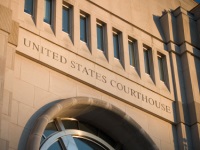An otherwise mundane SEC announcement on July 30, 2014 of an enforcement action charging a public company CEO and CFO with accounting fraud and internal controls violations is significant because the SEC is proceeding against the non-settling individual (the CEO) in an administrative proceeding rather than in federal court. While not unprecedented, it has been, to date, exceedingly rare for the Commission to proceed against an unregulated entity or person administratively rather than in federal court. This decision reflects the Commission’s and Enforcement Division’s recently, but frequently, stated intent to bring more administrative proceedings that previously would have been brought in federal court, now that the Commission has expanded remedies under Dodd-Frank Act. The decision also raises significant due process issues.
The action itself charges Marc Sherman and Edward Cummings, CEO and former CFO, respectively, of QSGI Inc., a Florida-based computer equipment company, with violation of the antifraud and other provisions of the Securities Exchange Act of 1934 and the Sarbanes-Oxley Act of 2002. According to the Commission’s press release, Sherman and Cummings claimed they had disclosed all significant deficiencies in internal controls over financial reporting to the company’s independent auditors, but in fact did not disclose or direct anyone else to disclose ongoing inventory and accounts receivable issues or improper acceleration of recognition and the resulting falsification of QSGI’s books and records. The Commission also alleges that the executives signed SEC filings and Sarbanes-Oxley certifications that were rendered false and misleading due to the above issues. Cummings entered into an administrative settlement with the SEC, agreeing to a cease and desist order, a $23,000 civil penalty, a 5-year officer and director bar, and a 5-year bar on appearing or practicing before the Commission as an accountant. Sherman did not settle, and will instead litigate against the Division of Enforcement in an administrative proceeding. READ MORE









